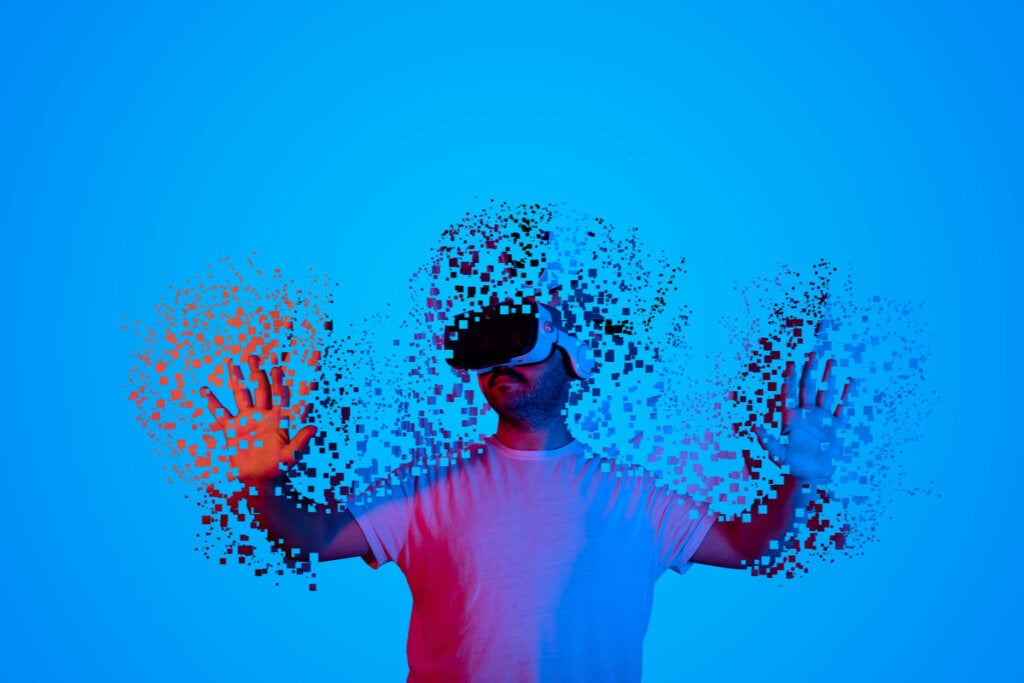Recently, the president of Facebook, Mark Zuckerberg, announced the changing of the corporate name of his company (including Facebook, Instagram, and WhatsApp) to Meta. The new brand is directly associated with the concept towards which Zuckerberg and other entrepreneurs in the technological world are turning toward. This is the metaverse.
However, what really is the metaverse? Is it a reality that you can grasp now or is it simply a concept from which the use of digital technology will be transformed? Most important of all, how will the metaverse affect our mental health?
The metaverse
The concept of the metaverse is relatively easy to imagine once you understand what it’ll entail. However, at the present time, it’s nothing more than a set of ideas and references. Nevertheless, this parallel reality, where you can interact with all kinds of users as if it were the real world, isn’t a new concept.
Indeed, you’ve seen this idea of virtual reality, where you relate via an avatar and different virtual reality devices, in various works of literature and science fiction.
The concept actually originates from the novel Snow Crash, written by Neal Stephenson in 1992. Furthermore, the idea has also been represented in fairly recent movies such as Ready Player One. In fact, in this film, the characters live parallel lives between the real world and a virtual world of a large technology company.
The influence of the metaverse on mental health
Beyond its business and entertainment possibilities, the metaverse poses certain problems related to the mental health of its potential users. As a matter of fact, psychology has been conducting studies for some time in this regard. They suggest both problems and benefits from the use and enjoyment of these virtual and augmented realities.
The University of Oxford conducted one such study. It mentions the possible benefits that virtual reality can have for patients with schizotypal features. These are people with behaviors and symptoms associated with schizophrenia. The study reveals that immersion in virtual reality can be useful in controlled environments. This is mainly for the treatment of certain phobias and disorders.
For some scientists, the controlled environment is key. However, the metaverse proposed by Mark Zuckerberg won’t be controlled. For this reason, we should investigate how the metaverse will, in reality, affect people’s mental health.
The University of Cambridge conducted a study that mentions the relationship between the appearance of delusions and the use of virtual reality. This research makes the point that ‘separating ourselves’ from our ordinary reality could lead to the appearance of symptoms close to psychosis.

Schizotypal features in digital technology
People with schizotypal tendencies are much more likely to use digital technology than others.
Apparently, immersing themselves in virtual realities like the metaverse, gives them the opportunity to escape from the real world. The place where all the problems of people with anxiety, depression, psychosis, and other serious mental conditions originate.
What provides temporary relief could also become a false haven for people with symptoms close to schizophrenia. However, whether it makes the metaverse safe for other people remains to be seen.
According to Facebook, in the next few years, people will move from seeing the company primarily as a social media company to a metaversal one. In fact, the company claims that ‘the metaverse is the highest expression of social technology’. On the other hand, it’s also a technology that will force us to identify the risks it poses to our mental health.
The post How Will the Metaverse Affect Our Mental Health? appeared first on Exploring your mind.



















Comments